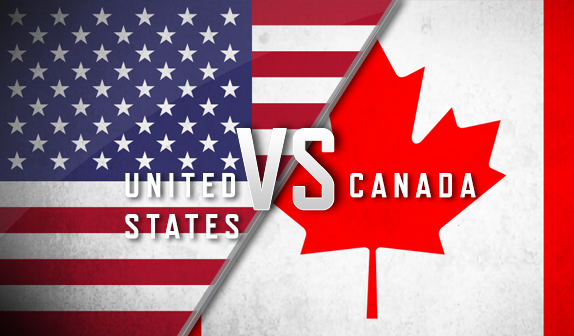

Migrating from the United States to Canada involves a series of steps and considerations. Below is a general overview of the process, but keep in mind that immigration laws and regulations may change, so it’s essential to verify the most up-to-date information on the official Canadian government websites or consult with an immigration lawyer.
Determine your eligibility: The Canadian government offers various immigration pathways, such as Express Entry, Provincial Nominee Program (PNP), Family Sponsorship, and more. Each program has specific eligibility criteria, so assess which one suits your situation best.
Research and gather information: Learn about the province or territory you wish to move to, its job market, cost of living, culture, and lifestyle. Researching in advance will help you make an informed decision and smoothen the transition.
Apply for a visa: Depending on your eligibility, you’ll need to apply for an appropriate visa or permit. For example, if you qualify for Express Entry, you can apply for permanent residency through the Express Entry system. If you have a job offer from a Canadian employer, you may apply for a work permit. If you have a Canadian citizen or permanent resident family member, they may sponsor you for permanent residency.
Prepare necessary documents: Ensure you have all the required documents for your visa application, including passports, educational certificates, work experience letters, language test results (such as IELTS or CELPIP for English proficiency), police clearance certificates, and more.
Language proficiency: Canada has two official languages, English and French. Depending on the immigration program you choose, you may need to prove your language proficiency. For most programs, you’ll need to take an approved language test.
Criminal record check: You will likely be required to provide a police clearance certificate from all the countries you have lived in for a certain period.
Medical examination: In most cases, you and your family members must undergo a medical examination to ensure you meet the health requirements for immigration.
Submit your application: Follow the instructions on the official Canadian government website for submitting your application. Pay the required fees and double-check that all your documents are in order.
Wait for a decision: The processing time varies depending on the type of visa or program you apply for. Be patient and wait for a decision.
Arriving in Canada: Once you receive your visa or permit, make travel arrangements and plan your arrival in Canada. Take note of the essential settlement steps, such as finding housing, obtaining a Social Insurance Number (SIN), opening a bank account, and getting familiar with the Canadian way of life.
Remember that the immigration process can be complex, so seeking advice from an immigration consultant or lawyer can be helpful to ensure you navigate the process smoothly and maximize your chances of success.
Governor Abdullahi Sule of Nasarawa State has refuted allegations that his state serves as a…
The A’Inamu community in Orokam district of Ogbadibo Local Government Area, Benue State, has disassociated…
The Federal Commissioner of the Public Complaints Commission in Benue State, James Oche has said…
The abductors of six Nigerian Law School students have reportedly issued a chilling ultimatum, threatening…
Governor Francis Ogbonna Nwifuru of Ebonyi State has ordered the suspension of 87 government officials…
The African Democratic Congress, ADC, says it is considering two major options, consensus and primary…